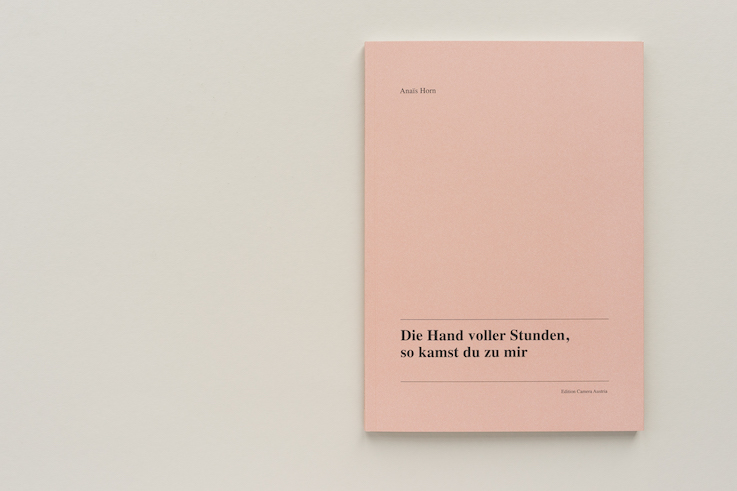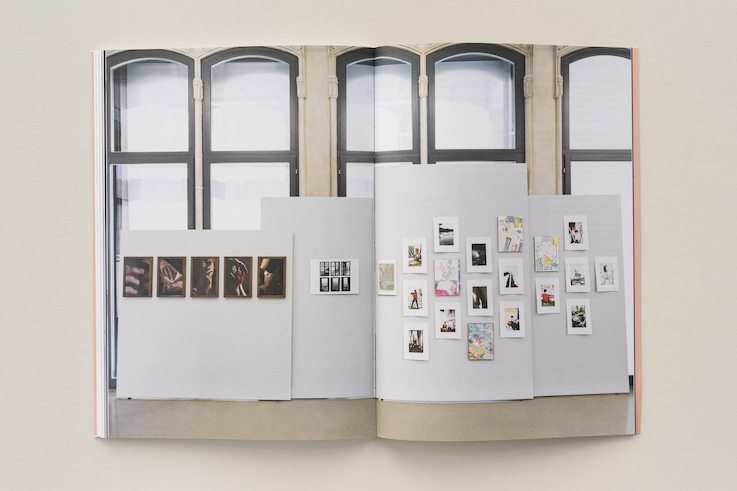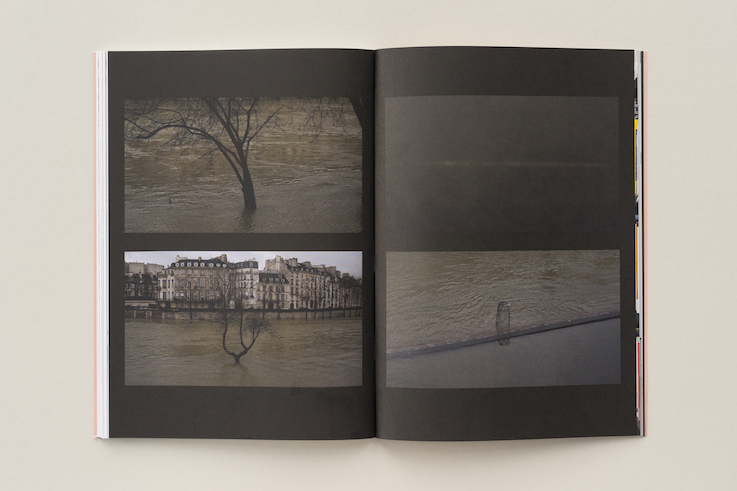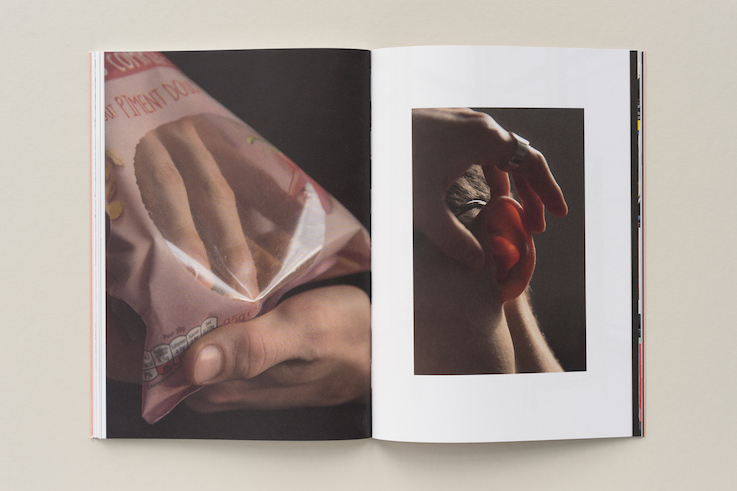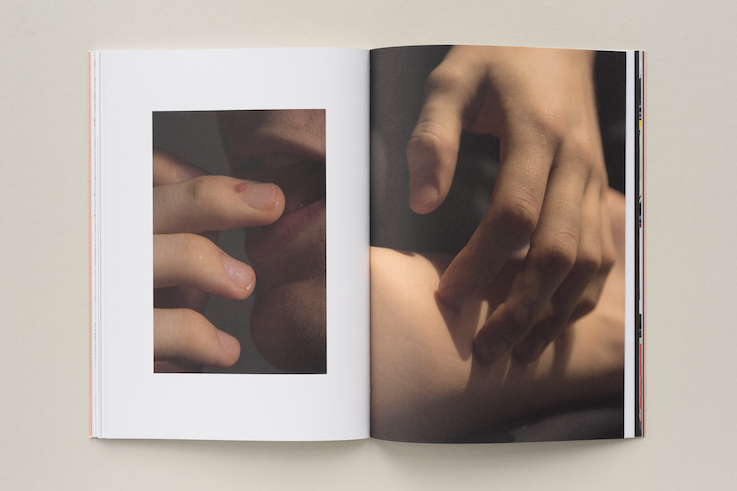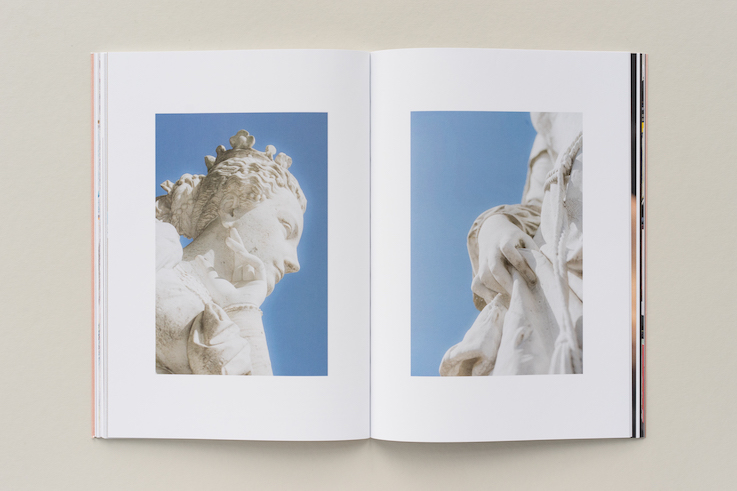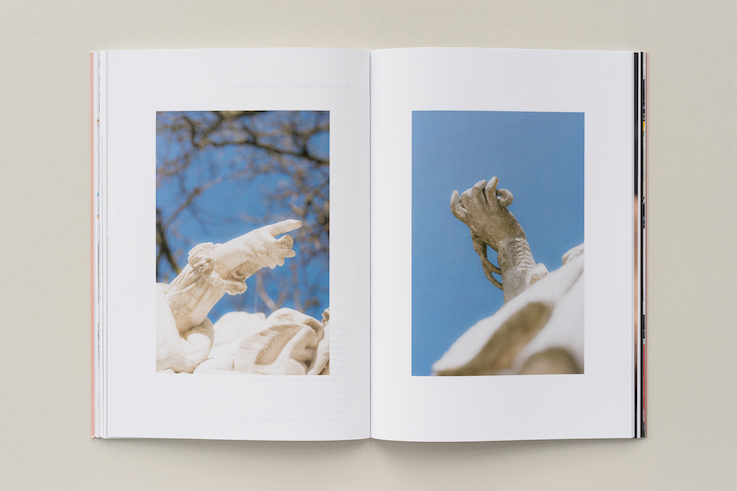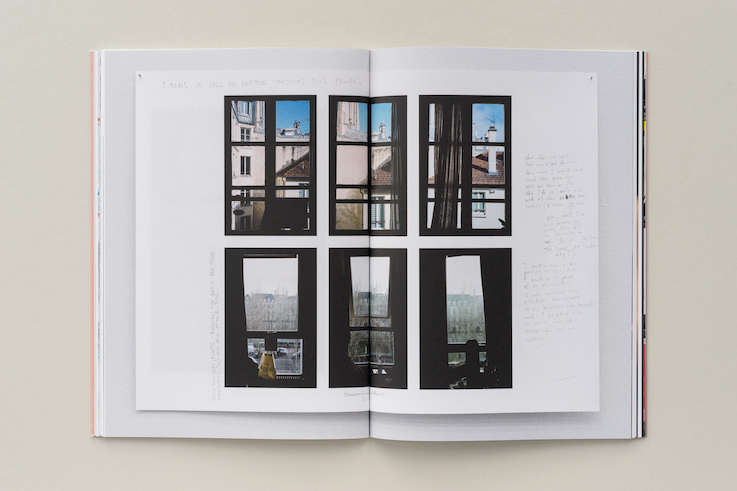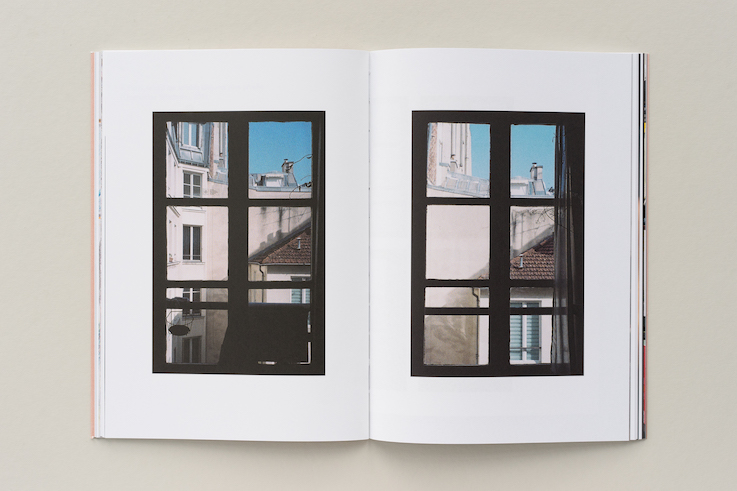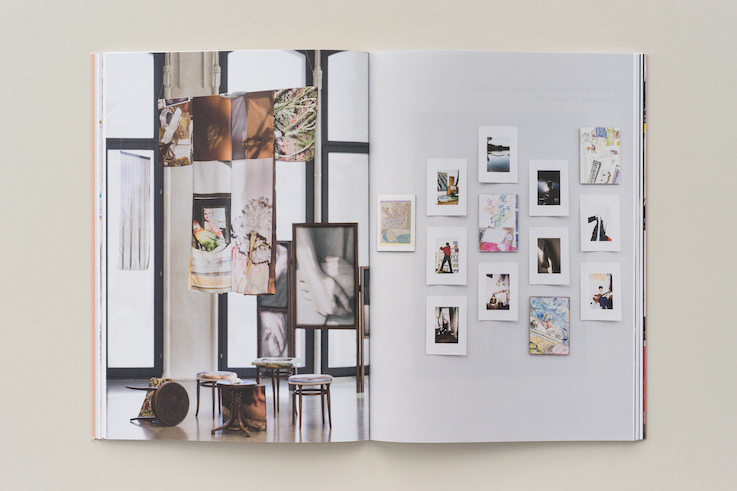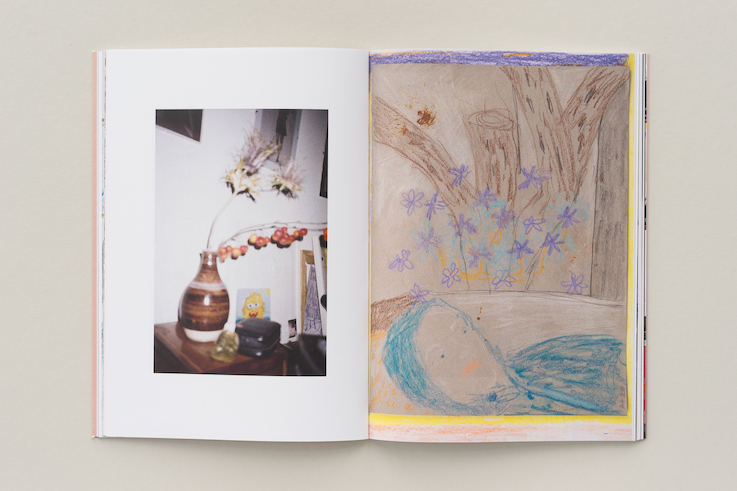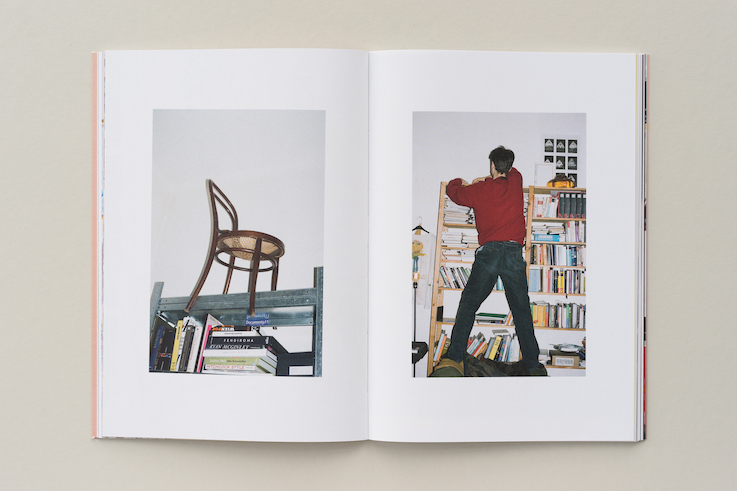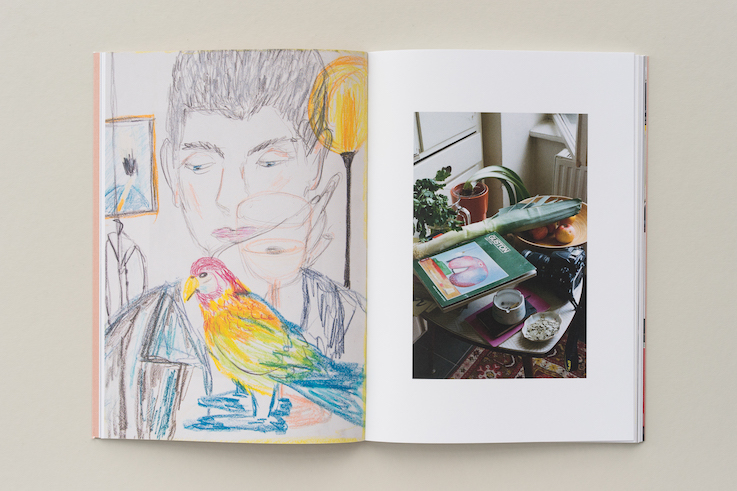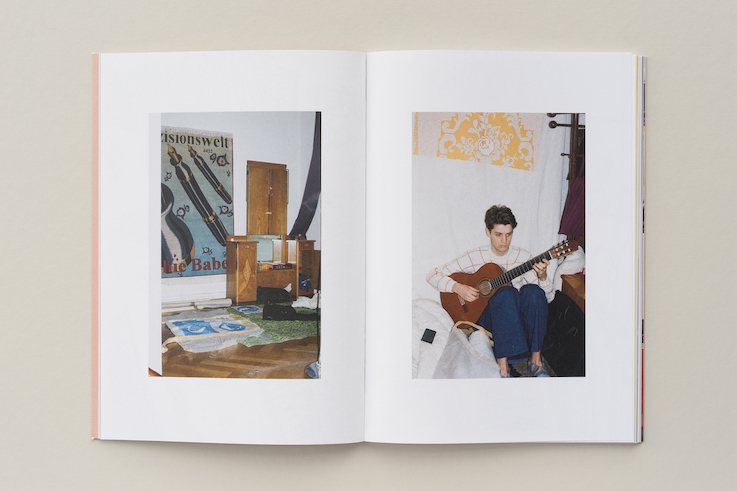Press information
Anaïs Horn: Die Hand voller Stunden, so kamst du zu mir
Infos
Ed. by Reinhard Braun.
Accompanying the exhibition »Anaïs Horn: Die Hand voller Stunden, so kamst du zu mir«,Camera Austria, Graz, 7.7. – 1.8.2021.
With contributions by Attilia Fattori Franchini and Wendy Vogel (eng.).
Edition Camera Austria, Graz 2021.
96 pages, 18 × 25.4 cm, 75 color illustrations.
€ 24.– / ISBN 978-3-902911-63-6
Presentation with Attilia Fattori Franchini, author and curator, and the artist
8. 9. 2021, 7 pm, Parallel Vienna,former Semmelweisklinik, Hockegasse 37, 1180 Vienna
Press downloads

Press Information
The publication that accompanies the exhibition Die Hand voller Stunden, so kamst du zu mir (Your Hand Full of Hours, You Came to Me) by Anaïs Horn is an intimate reflection on the current moment of physical distancing and uncertainty. Taking its title from Paul Celan’s collection of poetry Mohn und Gedächtnis (Poppy and Memory, 1952), it mixes the visual and the poetic, fragmenting images while encompassing different techniques, materials, formats, and registers. Examining the physicality of hands as a symbol of proximity, affection, and care, as well as a nonverbal tool of expression, Horn recounts a personal event as a starting point for her photographic and sculptural dérive, while creating a form that is consistently open to the process of becoming. Since the artist’s practice is eventful in general, this publication also unravels diaristically and evolves as a stream of consciousness determined by the medium of photography and its deconstruction. Creating an emotional tension between biographical moments and historical references, objects, and images, Horn candidly unveils her intimate memories and surroundings, highlighting a spatial shift from the public sphere to the domestic realm. Devised with a sense of theatricality, images expand into cast sculptures, pieces of furniture, see-through curtains, and clothing items—immersing readers in them, while conspiring to foster a feeling of déjà vu.
Excerpt from: Attilia Fattori Franchini “Hands Hanging Around in Oblique Participation”
The hand that extends toward the fruit, the rose, or the log that suddenly bursts into flames—its gesture of reaching, drawing close, or stirring up is closely related to the ripening of the fruit, the beauty of the flower, and the blazing of the log. If, in the movement of reaching, drawing, or stirring, the hand goes far enough toward the object that another hand comes out of the fruit, flower, or log and extends toward your hand—and at that moment your hand freezes in the closed plenitude of the fruit, in the open plenitude of the flower, or in the explosion of a log which bursts into flames—then what is produced is love.1
It is not surprising that the entire ethical question of responsibility commences with two hands. History recounts that Pontius Pilate, governor of the Roman province of Judaea (26–36 AD), was reluctant to express his judgment over the trial of Yeshua Ha-Nozri (Jesus of Nazareth).
To reinforce the uncertainty of his deciding position and to stop a possible upsurging riot, Pontius Pilate washed his hands, an iconic gesture, accompanying it with the words: “I am innocent of the blood of this just person.” The story is also fictionally narrated in the prologue to Mikhail Bulgakov’s Master and Margarita (1928–40 / 1967). Pontius Pilate is described as affected by a migraine, confused in the moment of judgment, prophetically sympathetic toward the young man. Iconographically, he is often depicted in the act of intently washing his hands, the words signified by the gesture, agency washed away.
Are images aware of the histories they carry? Ever since the advent of post-structuralism, scholars have struggled to move beyond the limitations inherent in the structuralist idea that aesthetic experiences could be appropriately modeled upon the notion of the sign. Washing your hands as a sign of deferment. An attitude inscribed into an image, a fragment of the past that curls up into the present moment.
Anaïs Horn’s practice is eventful. It unravels diaristically and evolves as a stream of consciousness determined by the medium of photography and its deconstruction.
A series of scenes that, when pieced together, create a narrative capturing an intimate vantage point. . . .
The exhibition Die Hand voller Stunden, so kamst du zu mir (Your Hand Full of Hours, You Came to Me) at Camera Austria, Graz, is an intimate reflection on the current moment of physical distancing and uncertainty. . . .
1 Jacques Lacan, Transference: The Seminar of Jacques Lacan, Book VIII, ed. Jacques-Alain Miller, trans. Bruce Fink (Cambridge: Polity Press, 2015), p. 52.
Anaïs Horn, born in Graz (AT), lives and works in Paris (FR) and Vienna (AT). In her artistic practice, she often interweaves literature/text and photography/video/drawing, exploring moments of intimacy with a special interest in topics such as liminality and coming-of-age. She observes people and their spaces, gently crossing borders, opening up the private and making intimacy a sensual experience. In the process, she investigates time, memories, transience, the body and its traces, the cautious intrusion of privacy, and the aesthetics of reality and fugacity. Her images take shape, exploring surfaces, haptics, and objects and often unfolding into spatial installations. With a background in literature and linguistics and a master in communication design, Horn graduated from The School for Artistic Photography Vienna (Schule Friedl Kubelka) in 2014. She has been awarded several scholarships and residencies, for instance at the Cité Internationale des Arts, Paris (2017–18 and 2021), Plovdiv, European Capital of Culture 2019 (BG), the ISCP New York (US, 2020, 2022), and AiR Trieste (IT, 2021). The artist’s book is an important medium for her work: her photobook Fading was published by DCV, Berlin (DE), in 2021. In 2020, her artist’s books Je suis malheureuse et heureuse and How do you feel about “Lou”? (in collaboration with Eilert Asmervik) were published by META/BOOKS, Amsterdam (NL). Je suis malheureuse et heureuse was shortlisted for the Photo-Text Book Award at the photo festival Les Rencontres d’Arles 2021.
Images
Publication is permitted exclusively in the context of announcements and reviews related to the exhibition and publication. Please avoid any cropping of the images. Credits to be downloaded from the corresponding link.

